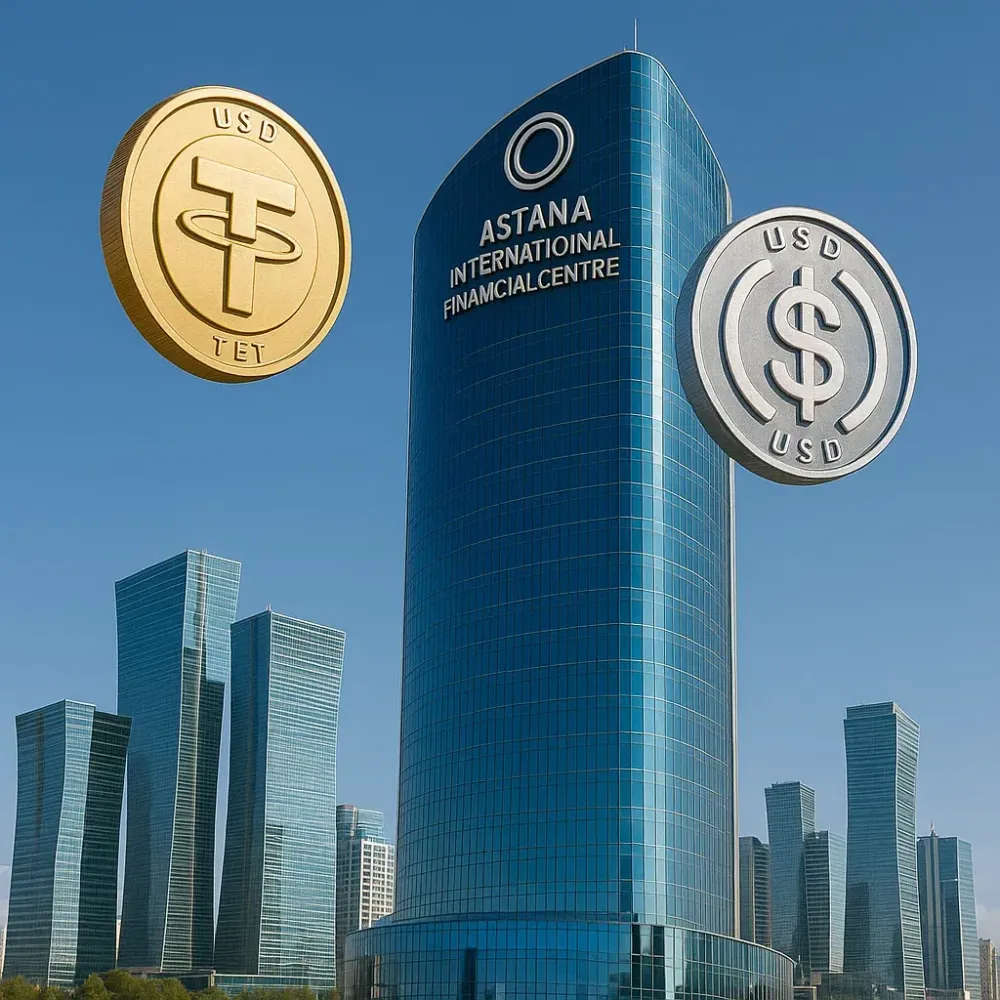Kazakhstan Pioneers Stablecoin Payments for Regulatory Fees, Bybit First to Join
🇰🇿 Kazakhstan Goes Crypto: Stablecoins Now Pay the Regulator
From oil to on-chain — Astana just became the first Central Asian hub to accept stablecoins for regulatory fees. Bybit leads the way, swapping slow fiat wires for instant USDT and USDC payments.
⚡ Quick Hits
- 📍 Where: Astana International Financial Centre (AIFC), Kazakhstan
- 💵 What’s accepted: USDT, USDC (USD-pegged stablecoins)
- 🏦 First mover: Bybit
- 📑 Launched: September 4, 2025 (Astana Finance Days forum)
- 🤝 Agreement: MMoU signed between AFSA and Bybit
- 📈 Context: First Bitcoin ETF in Central Asia launched Aug. 2025 with Fonte Capital & BitGo
🏦 From Fiat Delays to Stablecoin Speed
Until now, crypto exchanges and fintech firms in Kazakhstan had to settle license and supervisory fees through clunky bank transfers.
Now? Stablecoins like Tether’s USDT and Circle’s USDC cut out the middlemen. Payments are:
- ⚡ Faster – near-instant instead of days.
- 💰 Cheaper – lower transaction costs.
- 🔎 Transparent – blockchain-verified.
Evgeniya Bogdanova, CEO of AFSA, called it “the first-of-its-kind regulatory framework for stablecoin settlements in the region, reinforcing AIFC’s ambition to become a hub for digital finance.”
🧩 Industry Reactions
Bybit: praised the move as a fix for inefficiencies of fiat-based payments.
Bitfinex Securities (COO Jesse Knutson): “AFSA is once again ahead of the curve… Now, they recognize USDT and other stablecoins as interchangeable currencies for regulatory dues.”
🌍 Kazakhstan’s Bigger Crypto Play
This isn’t a one-off — it’s part of a bigger shift:
- 🟠 Bitcoin ETF: Fonte Capital + BitGo launched Central Asia’s first spot BTC ETF in Aug. 2025 (BTC was 111,238).
- ⛏️ Mining hub: Kazakhstan remains one of the world’s biggest Bitcoin mining centers.
- 🏦 Crypto reserves: Local authorities are exploring a state-backed crypto reserve, potentially filled with mined or seized assets.
Meanwhile, Europe is tightening stablecoin rules and Ukraine just advanced a crypto tax bill. Against that backdrop, Astana is positioning itself as a crypto-friendly alternative.
🚨 Why It Matters
- Kazakhstan is making stablecoins legit for government payments, not just trading.
- It sets a regional precedent — expect Uzbekistan, Kyrgyzstan, maybe even the Gulf states to take notes.
- It signals a future where regulatory compliance meets blockchain rails.
✍️ TL;DR
Kazakhstan just became the first Central Asian hub to accept stablecoins (USDT, USDC) for regulatory fees, with Bybit leading the pilot. Faster, cheaper, and transparent payments replace fiat wires — reinforcing Astana’s push to become a digital finance hub. Combined with its new Bitcoin ETF and mining clout, Kazakhstan is quietly building the Wall Street of Central Asia — on-chain.

Recent News
All Time High • Live
Have questions or want to collaborate? Reach us at: [email protected]










